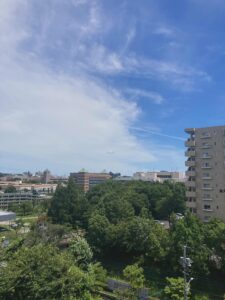【心晴日和(こはるびより)】
2025年7月21日(月)
エッセイストのように生きる
古原治奈の《心晴日和》へようこそ。
この「心晴日和」という言葉は、作家・喜多川泰さんの著書からいただきました。
「小さな心がけ一つで、幸か不幸かは自分で決めることができる」
そんな想いを胸に、毎月“1”のつく日に心のエッセイをお届けしています。
今回のテーマ
「2040年の未来の教育の変化について考える」
先週の台風が去ったあとの空。
ふと見上げた青空には、いろいろな形の雲が浮かんでいました。
「この雲は、ソフトクリーム、宇宙船、ハートのかたちににている」
そんなことを考えながら、私は今日も歩いています。

さて、今回は教育についてのお話です。
私は月に一度、ふたつの教育コミュニティで学びの時間を持っています。
-
植松努さん主催「開智プロジェクト」
-
子供向けSNS開発者・本山さん主催「MSI塾」
同世代の子育て中の方や、これから子育てが始まる方、子育てが一段落した方などと、「これからの教育」について、アップデートしあう場です。
ちょうど先日は選挙の日でした。
「将来、子どもたちも模擬選挙ができるようになったらいいね」
「小学生の頃から、政治に関心を持てる環境ができたら、投票率も変わるかも」
そんな対話が生まれました。
では、2040年。今の子どもたちが大人になった未来の教育はどうなっているでしょうか?
私なりに考えてみました。
2040年の教育はこう変わるかもしれない
◇オンラインで完結できる教育環境
教室だけが学びの場ではなくなるでしょう。
場所や時間に縛られず、自分のペースで学べる時代が当たり前になります。
◇偏差値の撤廃
点数や偏差値で人を測るのではなく、
「やる気」「挑戦する気持ち」「好き」という感情が重視される教育に。
◇教育の理念と方向性
理念:個を大事にする教育
(個性・個人の可能性を引き出す)
方向性:世界から求められる価値を生み出せる人へ
(サービス・芸術・エンターテイメント・技術など)
◇教育の3本柱
-
脳感傾向(自分の得意分野を知る)
-
志教育(どう生きるかを考える)
-
企業と教育の連携(小学生から企業体験や起業経験を積む)
こんなことを考えるきっかけをくれたのが、今月の教育コミュニティでした。
15年後、子どもたちが「自分は何がしたいのか」を自然に語れる社会であってほしい。
誰もが「挑戦したい」と思ったときに、すぐ行動できる社会であってほしい。
そんな未来のために、今日も私たち大人は、歩みを止めずにいきたいですね。
また次回の《心晴日和》でお会いしましょう。
古原治奈(こはら はるな)
Education in 2040: How Might It Change?
◇ A Fully Online Learning Environment
Learning will no longer be limited to classrooms.
Students will be able to learn at their own pace, anytime, anywhere.
This will become the norm.
◇ The End of the “Deviation Score” System
Education will shift away from measuring people by test scores or rankings.
Instead, motivation, the willingness to take on challenges, and the things students truly love will be valued most.
◇ Educational Philosophy and Direction
Philosophy:
Education that cherishes each individual, drawing out their unique potential.
Direction:
Nurturing people who can create value the world needs—
whether through services, art, entertainment, or technology.
◇ The Three Pillars of Future Education
-
Understanding Personal Strengths
Learning about one’s own tendencies and talents. -
Learning to Live with Purpose
Thinking deeply about how to live one’s life. -
Collaboration Between Business and Education
Starting from elementary school, students will gain real-life experience through business internships or even entrepreneurial challenges.
These ideas came from discussions in my education community this month.
Fifteen years from now, I hope we’ll have a society where children naturally say,
“This is what I want to do!”
And when they feel ready to challenge themselves, they can take action right away.
For that kind of future, we adults must keep learning and moving forward too.
See you again in the next edition of Koharubiyori.
Haruna Kohara
